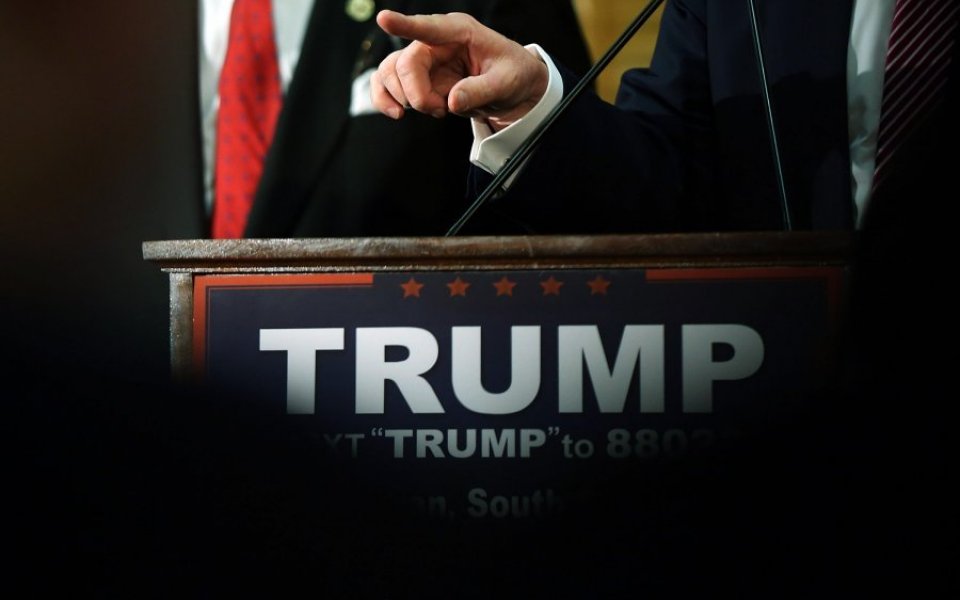Donald Trump will win if “establishment” remains a dirty word among Republicans

"Establishment” has become the dirtiest word you can use against your political opponents in the current US presidential cycle – the dirtiest one you can get away with on national television, at least. But the word is losing significance by the day.
Six months ago, to be labelled “establishment” meant you were a mouth-piece for donors, special interest groups or the party elite. Now, it has morphed into a synonym for anyone who has been involved in politics or who has any moderate streak about them. It’s kept its negative connotation, of course, but is being dished out disproportionately and unfairly.
Read more: How Trump mastered social media to win support
Take John Kasich, the runner-up in the New Hampshire primary, who has governed Ohio for two terms. His establishment credentials are the time he has spent working and compromising with Ohio’s legislature, winning over swing-voters in a swing-state, and balancing the state’s budget in a way that has won him praise from Republicans and Democrats. Yes – these accomplishments have become liabilities.
Or take senator Marco Rubio, the strong third-place winner in Iowa who continues to poll as the most electable Republican candidate of the bunch. While his tendency to sound a bit robotic behind the podium has some rightfully asking if the talking points are all his, the biggest “establishment” mark against his name is that he took part in a committee that tried its hand at comprehensive immigration reform by proposing a bipartisan (amnesty-not-citizenship) bill. But these days compromise is not a virtue.
The only major players who have managed to escape the establishment accusation are Donald Trump, Bernie Sanders and, to some extent, Ted Cruz; strange exceptions, when Sanders has spent a decade in national politics and Trump often brags about the elite political connections that got him business benefits – and the Clintons showing up at his wedding.
But this Republican primary cycle is not about what is fair or respectable. The accusations and attacks are getting worse and ever more ridiculous (evidenced by Cruz and Rubio’s fight during the debate last Saturday about who could speak Spanish better).
Read more: Meet Ted Cruz: The dark horse who could pip Trump
The in-fighting ironically stems from the fact that almost all candidates have a legitimate reason – based on tenure and polling – to remain in the race. In short, the Republican rivals are launching ever more desperate attacks on each other because they all think they have a chance of winning.
With the exception of Ben Carson, all candidates performed well enough in either Iowa or New Hampshire to justify carrying on their bids into South Carolina and Nevada. Add this to the benefits each candidate feels they bring to the race (two long-term governors, two charismatic senators, and a business tycoon who thinks he can give the economy the boost it needs), and everyone believes they deserve the nomination and no one feels compelled to give up their chance at it.
This is great news for Trump, who has the roughly 60 per cent of Republicans who don’t support him splitting their votes between five other candidates. And while the front page of yesterday’s Wall Street Journal featured a new WSJ/NBC poll that has Cruz leading over Trump nationally, the momentum Trump gains from winning primaries (even with less than 50 per cent of the vote) has the potential to snowball.
The debates thus far have provided plenty of entertainment for viewers at home – reality TV at its most outrageous and brutal. But the time for in-fighting and brutish attacks is now over. Any Republican who rejects Trump as the symbol of their party’s future better hope some clear-cut results come out of South Carolina and Nevada’s primaries, forcing more candidates to bow out of the race. Trump’s game will continue until the candidate pool dwindles further and the few obvious front-runners left standing are supported by the party and its base – “establishment” or not.